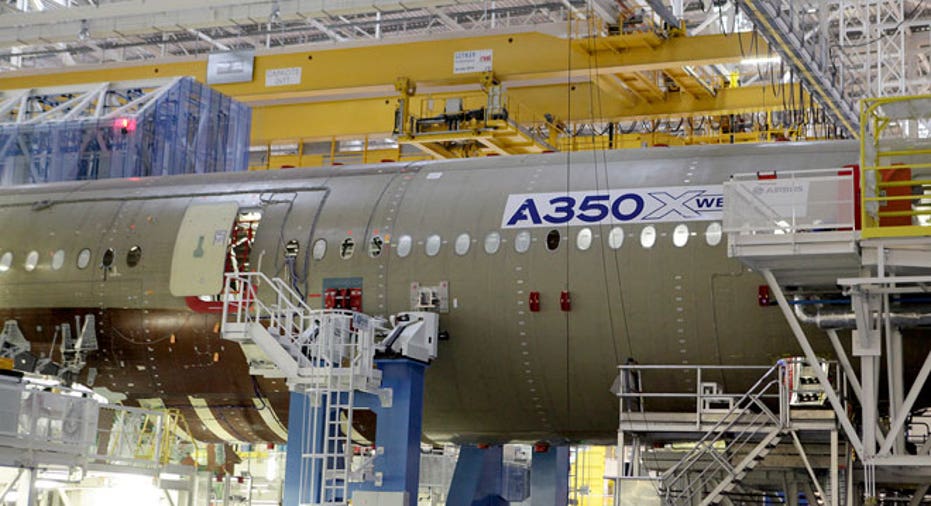Airbus, Safran create space launch joint venture

Airbus Group and Safran confirmed plans on Monday to combine work on space launchers, accelerating efforts to fend off a growing threat to Europe's Ariane space rocket from U.S. low-cost rival SpaceX.
The move is the first step towards consolidation after Airbus Group's chief executive Tom Enders, speaking exclusively to Reuters last month, called for a fundamental rethink of the complex way Europe designs and builds launchers.
Executives discussed the new venture with French president Francois Hollande, who called it a "major step" towards consolidation while underscoring the importance of 16,000 Ariane jobs in France - a number that many analysts expect to come under pressure as Europe slashes the cost of space launches.
"The space sector is changing fast. That is why we need to do things differently and alter the way we share our efforts and responsibilities," Safran's chief executive, Jean-Paul Herteman, said after the meeting at the French presidential palace, which was also attended by senior French space agency officials.
"This is absolutely indispensable ... in order to complete successfully the family of launchers for the future," he said.
Airbus and Safran shares were both up around 0.4 percent, while the CAC40 index was down 0.2 percent.
Reuters reported the move towards closer industrial co-operation on Sunday.
The companies said the joint-venture would combine Airbus Group's launch systems with Safran's propulsion systems, but hinted at broader integration of public and private activities in an effort to duplicate the success of planemaker Airbus.
Europe's Ariane 5 space launcher dominates the market for large commercial satellites but faces growing concerns over its future due to competition from Space Exploration Technologies (SpaceX), run by billionaire entrepreneur Elon Musk.
To respond to the threat, Airbus and Safran aim to lead a drive towards an integrated European launch firm drawing on the lessons of Airbus's planemaking unit, which was spurred into turning itself from being a consortium into a single company by the merger of transatlantic rivals Boeing and McDonnell Douglas in 1997.
"It is the same type of event, with competition pushing us to change our configuration completely," said Airbus Group's chief strategy and marketing officer, Marwan Lahoud.
The move was immediately backed by the world's third largest satellite operator. "Simplifying the multiple layers of Europe's space industry is going in the right direction," said Eutelsat President Michel de Rosen.
"The arrival of ... SpaceX has caused an upheaval in the global space industry," he told reporters.
Europe aims to replace its Ariane 5 rocket launcher with an Ariane 6 by 2021, but is wrestling with complex structures behind the design, manufacture and marketing of space launchers as well as strict conditions on the national share of work.
Under the current system under the auspices of the European Space Agency (ESA) national government space agencies such as CNES in France and the DLR in Germany design launchers, and pass the designs to Airbus Group to manufacture the product, which is then passed to a third party, Arianespace, to market.
Arianespace is owned by various public and private interests across 10 different European countries, including Airbus with about 30 percent and Safran with 11 percent while CNES is the biggest shareholder with nearly 35 percent.
Airbus and Safran said they would propose a common design for Ariane 6, on which there have been disagreements between France and Germany, and speed an interim solution, Ariane 5 ME.
By seizing the industrial initiative, Enders and Safran's chief executive Jean-Paul Herteman are effectively offering to lead Europe's fightback against SpaceX but must also tackle sensitivities among public bodies involved, observers said.
There have been differences with France's space agency over strategy and the speed of the process, which gathered pace after last month's Berlin Airshow, according to industry sources. But its most senior official threw his weight behind the venture.
"It is Europe's response to SpaceX. It strengthens the future of Ariane," Jean-Yves Le Gall, president of CNES, said after taking part in Monday's talks.



















